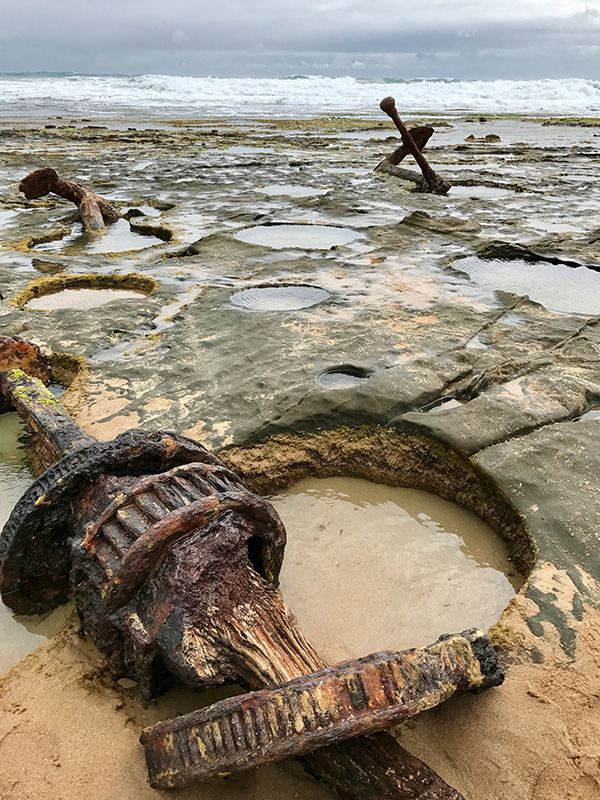Call for papers: WASTE & VALUE conference
Photo by Saskia Abrahms-Kavunenko
Age of waste,' 'discard society' and 'throwaway culture' are all terms that have been proposed to describe one of the defining features of our time, mass consumption, and the consequent mass production of waste. Our escalating consumption and its, often nearly immediate, conversion to waste is encouraged and supported by an industrial culture that specializes in producing short-lived goods to meet needs and desires, both proximate and manufactured. Toxicity, plastic gyres, resource depletion, and climate change are all connected to the escalating problems of consumption and waste. In this context, the conceptualization and material realities of waste have broad implications. It is necessary to develop materially grounded understandings of how waste is actively generated and subsequently treated and to recognize the cultural and social factors that render things disposable. At this interdisciplinary, two-day conference, we will inquire into the increasingly visible and pressing waste problems.
Day 1
9:00 - 9:30
Registration and coffee
9:30 - 10:00
Welcome
10:00 - 12:00
Paper session 1: Plastics
Katarzyna J. Cwiertka, Living with Plastics in Japan: Societal Impact of Resource Circulation of Plastics Act (2021)
Ka-ming WU, Andy ZHU & Mars HO, The Green Helper: Migrant Domestic Workers, Plastic Waste Recycling and Ecological Identities in Asia
Nhung Lu Rots, The rise and fall of a Buddhist environmental movement: Hòa Hảo Buddhism and the plastic waste crisis in the Mekong Delta.
Saskia Abrahms-Kavunenko, Message is a Bottle: Plastics, Connections, and the Story of Things on an Indian Ocean Island
12:00 - 13:00
Lunch
13:00 - 14:30
Paper session 2: Excess
Martin Grünfeld & Tim Flohr Sørensen, The in/disposable: on excess, endurance and endings
Paulina Kolata, Consuming Buddhist Excess: Life Stories of Rot, Loss, and Reuse from Japan’s Temple Kitchens
Lene Granzau Juel-Jacobsen, Festival tents: Bargain, Shelter and Discard
14:30 - 15:00
Break with cake!
15:00 - 16:30
Paper session 3: Waste Moralities
Sierra Humbert, Menstruation, the body and sanitary waste: menstrual products as moral materialities in Sankhu, Nepal
Dendup Chophel, From mindless consumerism to mindful moderation: Reconfiguration of Buddhist votive offering practices
Siwi Putu Puspa Eisner, The Conceptualization of Tri Hita Karana in the Interpretation and Handling of Waste among Balinese Hindus
Day 2
9:00 - 10:30
Paper session 1: Death
Hannah Gould, Bone, Ash, Soil, Dust: Making ‘sacred remains’ and ‘necro-waste’ in Australia and Japan
Mark Shtanov, Clandestine necro-structure: Anatomy, role and value of a high-temperature waste incinerator
Halle O'Neal, Meaningful Waste in Medieval Buddhist Death Rituals
10:30 - 11:00
Break
11:00 - 12:30
Paper session 2: Value transformations
J. O’Hagan & B. Eiterstraum, The untapped value of vacant homes in rural Denmark.
Aarti Latkar, Mapping Registers of Value in the Circular Economy: The Case of Plastics in India
Trine Brox, Violent smashing, careful repair: Waste and value in the Cultural Revolution and its aftermath in Tibet
12:30 - 13:30
Lunch
13:30 - 15:30
Paper session 3: Waste imaginaries
Elizabeth Allison, Refusing Modernity: Bhutan’s journey from consumption colonialism and disposal dilemmas toward Zero Waste
Thupten Wodzer, Handprints on the Tibetan Plateau: The Making of Zero Waste Communities in the Sanjiangyuan Region, China.
Shiqin Zhang, Laji as Identities, Writing as Ragpicking: Reconceptualizing Waste and Modernity in Twentieth Century China
Daniel Sosna, Giving Up Waste Disposal in Europe: Beyond Environmental Concerns
15:30 - 16:00
Break with cake!
16:00 - 17:00
Discussion:
Registration
Researchers and students who wish to attend the conference without presenting a paper, are requested to register by 8 April 2024. Register here .
The conference will be free to all its participants.
Questions regarding practical and logistical issues can be made to the conference coordinators at ccbs@hum.ku.dk .

